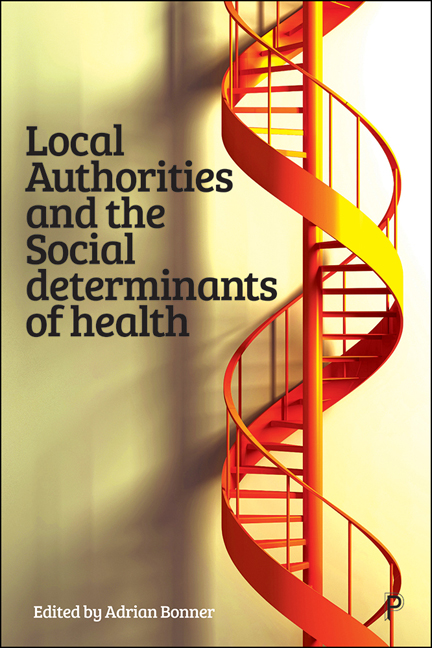Book contents
- Frontmatter
- Dedication
- Contents
- List of Figures, Tables and Boxes
- Notes on Contributors
- Acknowledgements
- Foreword
- Summary
- Introduction: Key Sociopolitical Changes Affecting the Health and Wellbeing of People
- Part I Health, Social Care and Community Wellbeing
- Part II The Role of Local Authorities in Promoting Health and Wellbeing in the Community
- Part III Local Authority Commissioning
- Part IV The Third Sector
- Part V Socio-Economic Political Perspectives
- Conclusion
- Appendix: COVID-19 Timeline
- Index
Foreword
Published online by Cambridge University Press: 25 March 2021
- Frontmatter
- Dedication
- Contents
- List of Figures, Tables and Boxes
- Notes on Contributors
- Acknowledgements
- Foreword
- Summary
- Introduction: Key Sociopolitical Changes Affecting the Health and Wellbeing of People
- Part I Health, Social Care and Community Wellbeing
- Part II The Role of Local Authorities in Promoting Health and Wellbeing in the Community
- Part III Local Authority Commissioning
- Part IV The Third Sector
- Part V Socio-Economic Political Perspectives
- Conclusion
- Appendix: COVID-19 Timeline
- Index
Summary
The General Election on 12 December 2019 resulted in a Conservative government that, with a majority of 80, was mandated to ‘Get Brexit Done’. The socio-economic background to the Referendum result, in 2016, to leave the European Union (EU), has its origins in the 19th century. The industrial revolution contributed to Britain becoming a wealthy colonial power. The dark side to this economic growth included slavery, exploitation of working people and poor health for those who stoked the fires of the ‘dark satanic mills’. The extremes of wealth and social deprivation had political consequences, resulting in the emergence of trade unions and origins of the welfare state. The political drivers resulting in the United Kingdom (UK) leaving the EU in 2020 include a significant response from people living in traditional labour-supporting communities, particularly in South Wales and the northern parts of England. People voting to leave the EU have experienced the outcomes of authority budgets undermining welfare support, pressures on the National Health Service (NHS) and social care and concerns about threats, real or imagined, to employment owing to the free movement of people within the EU. Feelings of being left out of the economic growth of the UK, the increasing gaps between socially deprived and those better off, and the lack of personal actualisation is noted by Burns in Part I, Chapter 1, as a key determinant of the ‘deaths of despair’ and decreasing life expectancy.
The growing concern about the links between social conditions and the state of public health led to the emergence of modern local government in the UK. In recent years, a greater understanding that wellbeing of people is an important determinant of the economic prosperity is demonstrated by the ‘wellbeing’ budget being introduced by the New Zealand Government, reported in The Guardian, 30 May 2019.
In 1945, Clement Attlee's Labour government was elected at a time of severe post-war austerity. It marked the start of a new social-democratic consensus that was to develop over 30 years under successive governments. The election of Margaret Thatcher's Conservative government in 1979 up-ended this post-war consensus.
- Type
- Chapter
- Information
- Local Authorities and the Social Determinants of Health , pp. xxv - xxxPublisher: Bristol University PressPrint publication year: 2020

